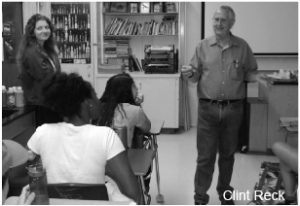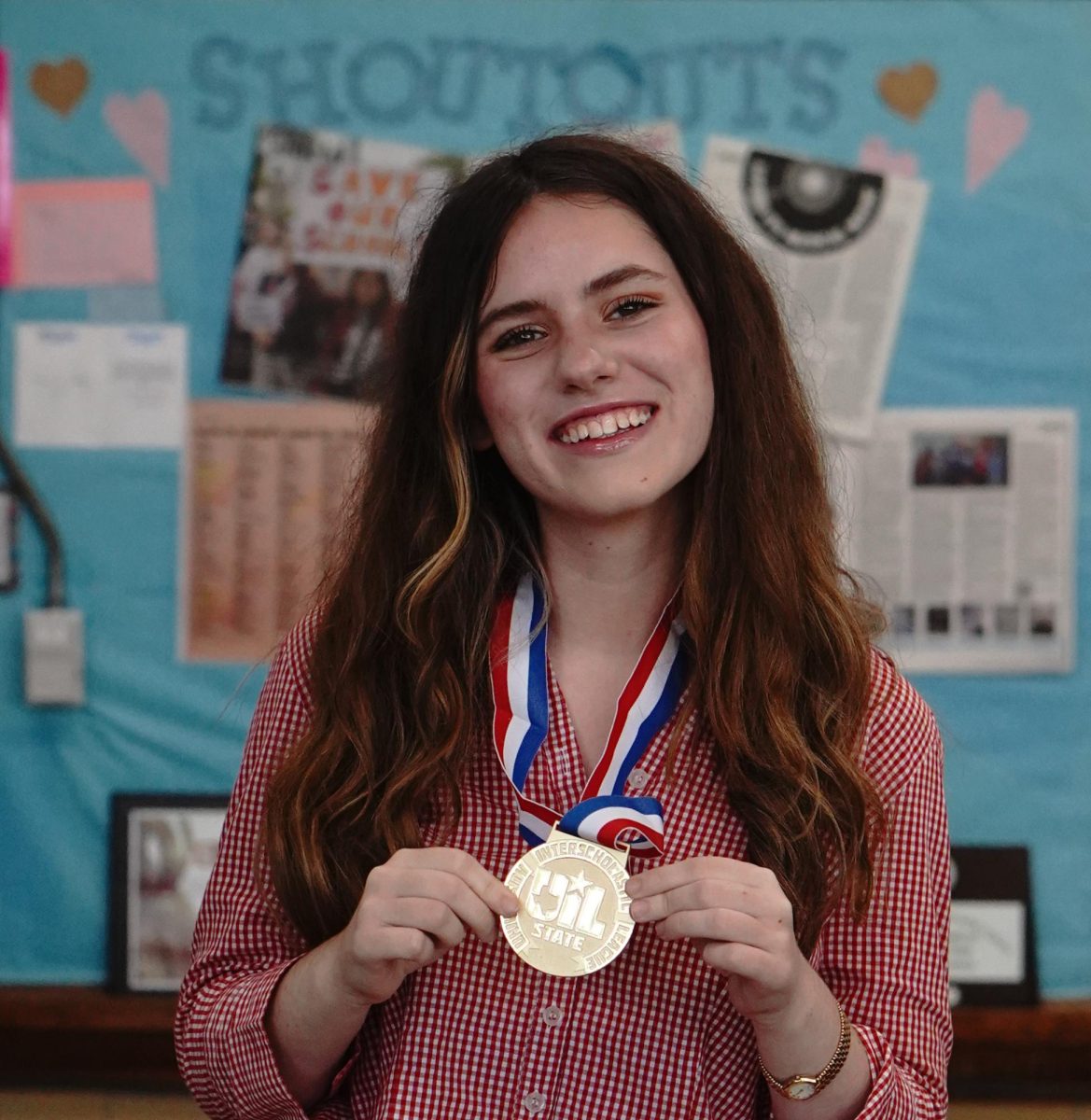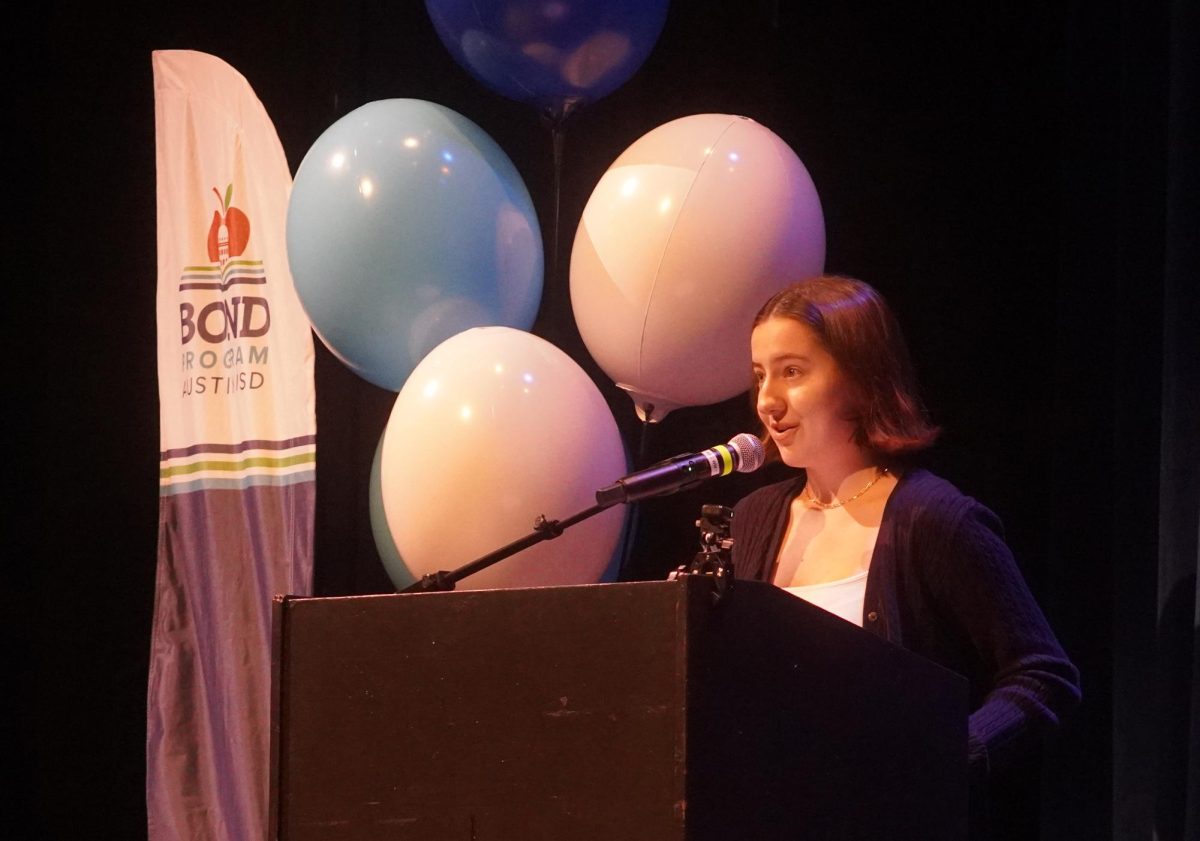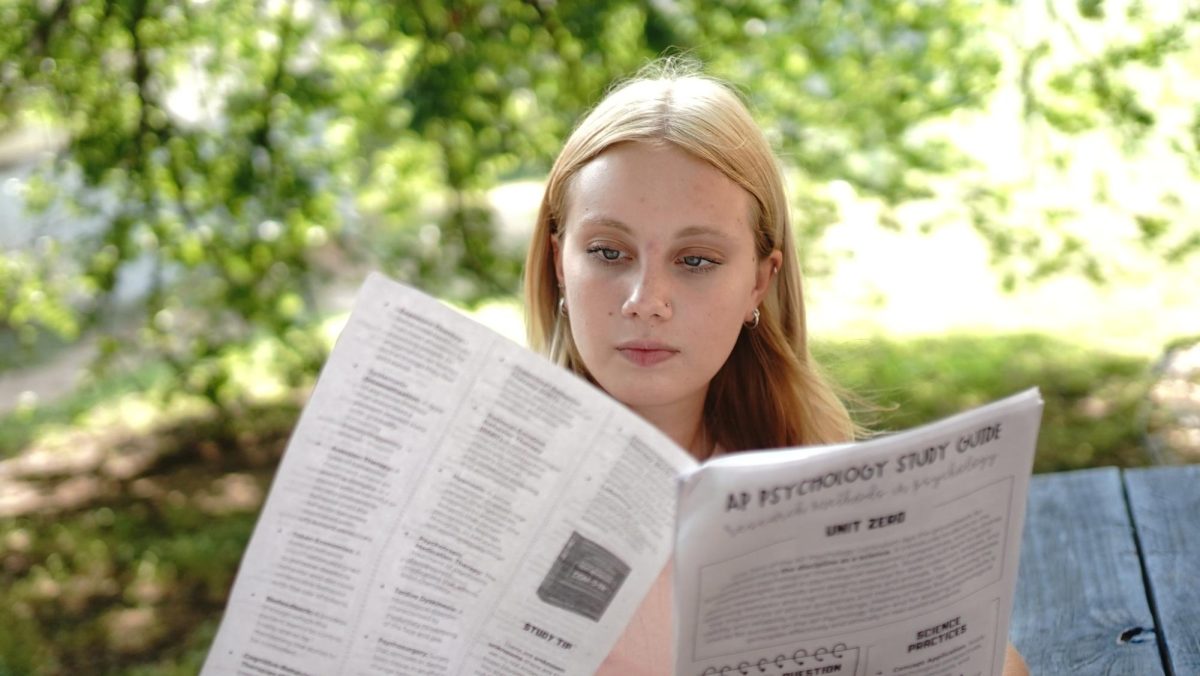Faculty members say farewell to teaching
When AP United States History teacher Joe Underwood announced that he would be leaving during the spring semester, his students were more upset than he expected them to be.
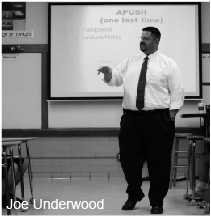 “For right now, my students are really upset, I appreciate that and it touches my heart,” Underwood said. “But I think maybe because of [their] age, [they’ve] actually taken it a little harder than I thought [they] would. Maybe it’s partly because I left in the year. Maybe if it was at the end of the year, [they] might not have taken it so hard, but I think there was a little bit of fear about what [was] going to happen with the AP exam. I think there’s been more fear than I expected.”
“For right now, my students are really upset, I appreciate that and it touches my heart,” Underwood said. “But I think maybe because of [their] age, [they’ve] actually taken it a little harder than I thought [they] would. Maybe it’s partly because I left in the year. Maybe if it was at the end of the year, [they] might not have taken it so hard, but I think there was a little bit of fear about what [was] going to happen with the AP exam. I think there’s been more fear than I expected.”
Underwood accepted an administrative position at Copperas Cove High School in March and announced his resignation to his classes in late April.
“It is bittersweet. [My last day] was a lot harder then I expected it to be,” Underwood said. “I’ve been at different campuses and I’ve moved campuses before, but I am so privileged to have had a small role in the lives of (students) here. Part of the reason I think I got hired at Cove is because in my interview I told them, ‘I don’t need a job. I have a job, so this place is going to have to be pretty special for me to even consider leaving MAC.’ And they are. They’re not better than MAC, but for me in my situation, they are. I’m excited.”
With a week between leaving and the AP US History exam, Underwood said he is confident in his students’ readiness.
“Ideally, of course, I would’ve gotten just a touch further, but I feel that one or two more lectures would not have made the difference,” Underwood said. “I am confident that [my students are] scholars of US History. My goal is never the test. The test is one test on one day. It doesn’t matter to me. What matters to me is that [my students] know [their] place in the Republic. They know what ‘We the People’ means and the history, the good, the bad and the ugly, of this amazing Republic, and they do. So mission accomplished.”
Along with administration, Underwood selected substitute Thomas Mangum as his long-term replacement.
“Mangum is a certified social studies guy, and we picked him to be a permanent [substitute],” Underwood said. “However, I have scripted every day until the end of the year. Every lesson plan is one that I designed. If I didn’t get the job at Cove and I was staying, this is what we’d do anyway. So what I’ve been [telling my students] is, ‘It’s the same tour. You just have a slightly different tour guide.’”
Underwood said the thing he’ll miss most about McCallum is the way he gets to interact with students.
“I’ve never so consistently had classes with multiple students who give more than one word answers, and I love getting to challenge [them],” Underwood said. “Not academically. I don’t know that my class is actually that academically challenging, more philosophically and politically. I get to come at [my students] from an angle that a lot of them have probably never been challenged from. It’s been a lot of fun to have those conversations and, I hope, teaching that we can disagree and still do life together. It’s OK to disagree with people. It’s all about how you disagree.”
Among his most significant moments, Underwood said the challenges of this school year are the most memorable.
“Each year has had some memorable moments,” Underwood said. “I always say ‘Let’s load up in my truck,’ and my first year here my students decided to actually load up in my truck. Last year I had a student who attempted to do the, ‘Oh Captain, My Captain’ scene from Dead Poets Society, and I came in my room and they all stood up on the desk and said, ‘Oh Captain, My Captain’ to me. I just lost it. I was crying then. This year, it has been [my students] making me go back and actually read the textbook. I knew they were going to ask me about things about the text and I’ve had to go back and remember some things. [This class] has pushed me academically harder then I’ve ever been pushed. That excites me because the picture thing was fun, and the ‘Oh Captain’ thing was tender and emotional, but [this class] has done the thing that all teachers want their students to do. They learned.”
Underwood said he does not expect to leave a legacy of a great teacher but instead a love for history.
“I’m highly forgettable. I really am. [These] guys are not going to remember me next year. [They’re] going to be worried about what colleges they’re going to,” Underwood said. “I wasn’t here enough to have a legacy. Jim Ferguson, the man I replaced, who was here for over 20 years, that’s a legacy. If you want to call it a legacy, I hope some students remember there was a teacher who absolutely loved what he did and absolutely loved them. Maybe they picked up a couple of presidents or a couple of acts, or a doctrine or two, but most importantly I hope that my students know that they are absolutely a part of ‘We the People’ and what that means. If you want to call that a legacy, I hope that’s what my legacy is, that there are some students who understand that they are a part of a much bigger play, and they have a verse to contribute in that play, known as the American Republic. Mostly I hope [they] just know that I loved [them] and I loved history and I hope I helped [them] love history a little bit more.”
Journalism teacher Rhonda Moore is leaving after 15 years teaching at McCallum.
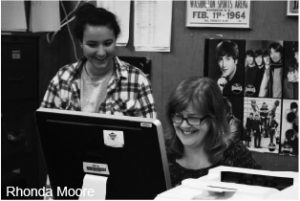 “I actually started out in television production before I even graduated from college,” Moore said. “In college I took education courses as my backup and never really expected to teach, so I took everything but student teaching. When I got tired of TV, an opportunity opened up at the high school I graduated from and so I took the job. I actually started teacher six weeks into the school yea,r so I was working in television on a Wednesday and the following Monday I started teaching. I had never stood in front of a class before in my life.”
“I actually started out in television production before I even graduated from college,” Moore said. “In college I took education courses as my backup and never really expected to teach, so I took everything but student teaching. When I got tired of TV, an opportunity opened up at the high school I graduated from and so I took the job. I actually started teacher six weeks into the school yea,r so I was working in television on a Wednesday and the following Monday I started teaching. I had never stood in front of a class before in my life.”
Prior to working at McCallum, Moore worked in Houston for nine years. She said that the principal at the school she was working at insisted on prior review, which at times could frustrate her. That was when she decided to start looking for a different job.
“I went home one day and I was very frustrated with him,” Moore said. “I emailed a friend of mine who worked at UIL and at the end of the email I said, ‘If you hear of any jobs just let me know,’ just because I was venting. So he wrote me back because there were some job openings in Austin. I ended up moving to Austin and eventually made my way to McCallum.”
Moore said she is retiring to help take care of her mother, but she will still have extra time to do other things.
“I feel right now that I’m being pulled in two different directions with work and taking care of my mother, and it’s just gotten to be overwhelming,” Moore said. “I will have a lot of extra time, though. I will do workshops and conventions when they come up [for UIL].”
Moore said McCallum is unlike any place she has every worked before because everyone is so accepting.
“I love, I absolutely love McCallum,” Moore said. “I like the diversity. I love that it is such a liberal school because I’m a liberal person. I love the way everyone is so accepting of everyone else. I’ve never worked anywhere, at any job, doing anything, where I was in such an accepting environment, and I just love that.”
Moore said that there isn’t one moment at McCallum that sticks out to her, but working time with former AP U.S. History teacher Jim Ferguson was fun.
“Mr. Ferguson was across the hall for so many years, and he and I had a great time,” Moore said. “Every morning before school started he would stop in front of my door and would say, ‘Good morning, Ms. Moore.’ Whenever we would celebrate birthdays in class, we always brought Mr. Ferguson something to eat. So he was kind of a part of our staff even though he wasn’t on staff.”
Moore said the thing she will miss the most about McCallum is the kids.
“I have had so many wonderful students here. It’s gonna be so hard to say goodbye,” Moore said. “Talk about the kids and I’ll tear up because I’m gonna miss them so much. I have been so very fortunate to have such great kids. I just come in and the kids do the work, and it’s wonderful to watch.”
Outside of the classroom, science teacher Clint Reck has a passion for the subject he brought to the school: astronomy.
“I grew up in the Panhandle of Texas, where the skies were clear and bright. When we were on Boy Scout trips, we would lay out in the night sky and just look at it. We didn’t know anything, but we just looked. It’s just so gorgeous when you see a perfect sky, and so I took an astronomy course in college. I learned some things, and I got an idea of what was going on. Then I just read about it for the next 30 years.”
Reck is the sole astronomy teacher at the school and hosts “star parties,” open gatherings at night during which he sets up telescopes for students to look through. In the fall, Reck will not return for his 12th year at McCallum. Instead, he is retiring and moving to Indianapolis.
“The Indianapolis Astronomy Club is very active,” Reck said. “They have a very large telescope that you have access to, so I want to do that. I like to garden. I’ve started organic gardening and grow all my own things. The town I plan to live in, which is outside of Indianapolis, has farmers’ markets, so I’ll go there shopping. And I’ve got grandkids in Indianapolis, so I’ll be going to baseball games, basketball games and swim meets.”
In addition to astronomy, Reck teaches physics for juniors. He said he loves using the Van de Graff generators because it’s funny when the students don’t expect to get shocked.
“There was a girl in the class who was paying no attention,” Reck said. “We had the Van de Graff on, so I chained everybody up across the room, and I was the last one. I touched her ear. She knocked a chair over as she was running to the back of the room screaming at me.”
Reck started teaching at McCallum 11 years ago after a phone call with Principal Mike Garrison.
“Mr. Garrison called me and said, ‘Would you like to teach IPC?’” Reck said. “And I said, ‘What’s that?’ And he said, ‘Integrated physics and chemistry.’ And I said, ‘I don’t know. I’ll get back with you.’ I knew a girl who just had graduated from high school and I said, ‘Am I smart enough to teach IPC?’ And she went, ‘Oh yeah, you’re good. You’re good.’ So I called Mr. Garrison back and said, ‘Yeah, I’ll take IPC,’ which I loved.”
Reck taught IPC for six or seven years before the district changed to a 4×4 graduation plan requirement.
“When they went to the 4×4, I asked Mr. Garrison if I could teach an astronomy course, and he said, ‘If you can get 30 people together, you can have one.’ And I think I got 110 the first year, so I’ve always taught three or four classes of it.”
Reck said his time here made him wish he could’ve gone to a school like it where the population is so diverse.
“I went to a school that there were 79 in my graduating class,” Reck said. “Everybody looked exactly like me. There was no diversity. Everybody in my first grade class was in my senior class. Nobody ever came or left. It was boring. When I came here, I thought, this would’ve been so cool to have been in a school that if you ever get tired of who you are, you can reinvent yourself and find people who have never seen you before.”
Reck said his favorite thing about McCallum is it’s in Austin and it has Austin vibes.
“There could never be a most memorable moment,” Reck said. “There are so many good kids who have come through. If you think about it, I’ve had 150 to 180 students a year for 10 years, that’s 1800 people that I have known, and everybody is unique. Everybody’s got a story so they’re all cool.”



